Related Research Articles
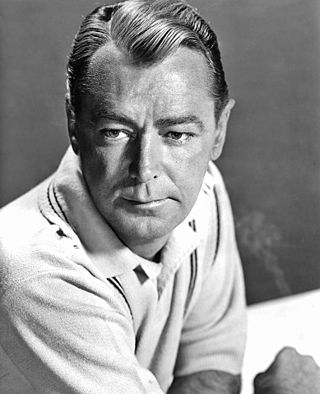
Alan Walbridge Ladd was an American actor and film producer. Ladd found success in film in the 1940s and early 1950s, particularly in films noir and Westerns. He was often paired with Veronica Lake in films noir, such as This Gun for Hire (1942), The Glass Key (1942), and The Blue Dahlia (1946). Whispering Smith (1948) was his first Western and color film, and Shane (1953) was noted for its contributions to the genre. Ladd also appeared in ten films with William Bendix.

The David Geffen School of Drama at Yale University is a graduate professional school of Yale University, located in New Haven, Connecticut. Founded in 1924 as the Department of Drama in the School of Fine Arts, the school provides training in every discipline of the theatre – acting, design, directing, dramaturgy and dramatic criticism, playwriting, stage management, technical design and production, and theatre management. It was known as the Yale School of Drama until its endowment by David Geffen in 2021.

Dame Agnes Sybil Thorndike, Lady Casson, was an English actress whose stage career lasted from 1904 to 1969.

Dame Virginia Anne McKenna is a British stage and screen actress, author, animal rights activist, and wildlife campaigner. She is best known for the films A Town Like Alice (1956), Carve Her Name with Pride (1958), Born Free (1966), and Ring of Bright Water (1969), as well as her work with the Born Free Foundation.
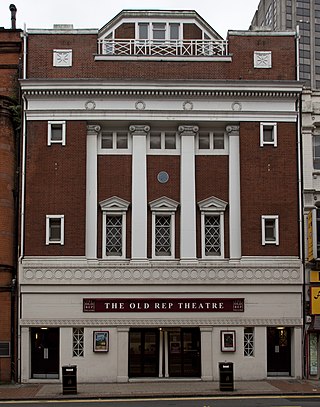
The Old Rep is the United Kingdom's first ever purpose-built repertory theatre, constructed in 1913, located on Station Street in Birmingham, England. The theatre was a permanent home for Barry Jackson's Birmingham Repertory Company, formed in 1911 from his amateur theatre group, The Pilgrim Players, founded in 1907. Jackson funded the construction of the theatre and established his professional company there.

Wyndham's Theatre is a West End theatre, one of two opened by actor/manager Charles Wyndham. Located on Charing Cross Road in the City of Westminster, it was designed c.1898 by W. G. R. Sprague, the architect of six other London theatres between then and 1916. It was designed to seat 759 patrons on three levels; later refurbishment increased this to four seating levels. The theatre was Grade II* listed by English Heritage in September 1960.

Eva Le Gallienne was a British-born American stage actress, producer, director, translator, and author. A Broadway star by age 21, Le Gallienne gave up her Broadway appearances to devote herself to founding the Civic Repertory Theatre, in which she was director, producer, and lead actress. Noted for her boldness and idealism, she became a pioneering figure in the American repertory movement, which enabled today's off-Broadway. A versatile and eloquent actress herself, Le Gallienne also became a respected stage director, coach, producer and manager.

John Michael Terence Wellesley Denison was an English actor. He often appeared with his wife, Dulcie Gray, with whom he featured in several films and more than 100 West End theatre productions.
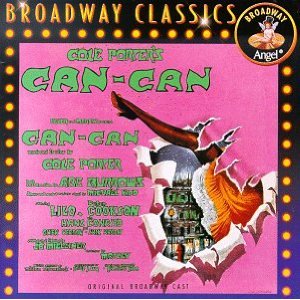
Can-Can is a musical with music and lyrics by Cole Porter, and a book by Abe Burrows. The story concerns the showgirls of the Montmartre dance halls during the 1890s.

Robert James Gillespie is a British actor, director and writer. Notable acting credits include Keep It in the Family (1980), At the Earth's Core (1976) and Force 10 from Navarone (1978). Later, he appeared in Jimmy McGovern's Broken and Mike Leigh's film Peterloo about the Peterloo Massacre. The first volume of his autobiography, Are You Going To Do That Little Jump?, was published in 2017. A second volume, Are You Going To Do That Little Jump? The Adventure Continues followed in October 2021. At the same time, Gillespie launched a new publicly-available and growing online archive of his extensive career, entitled Little Jump.

The Lyric Theatre is a West End theatre in Shaftesbury Avenue in the City of Westminster. It was built for the producer Henry Leslie, who financed it from the profits of the light opera hit, Dorothy, which he transferred from its original venue to open the new theatre on 17 December 1888.

Basil Herbert Dean CBE was an English actor, writer, producer and director in the theatre and in cinema. He founded the Liverpool Repertory Company in 1911 and in the First World War, after organising unofficial entertainments for his comrades in the army, he was appointed do so officially. After the war he produced and directed mostly in the West End. He staged premieres of plays by writers including J. M. Barrie, Noël Coward, John Galsworthy, Harley Granville-Barker and Somerset Maugham. He produced nearly 40 films, and directed 16, mainly in the 1930s, with stars including Gracie Fields.

Ronald Glasfryn Lewis was a British actor, best known for his appearances in British films of the 1950s and 1960s.
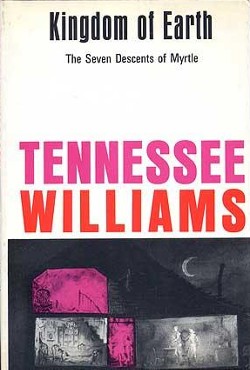
The Seven Descents of Myrtle is a play in seven scenes by Tennessee Williams. It started as a short story, The Kingdom of Earth, which Williams began in 1942 while in Macon, Georgia, but did not publish until 1954, in the limited edition of his story collection Hard Candy. Williams subsequently adapted the story into a one-act play, "Kingdom of Earth," published in the February 1, 1967, edition of Esquire magazine. He then expanded that play into a full-length seven-scene version, premiered the following year in New York with the title The Seven Descents of Myrtle and published on October 31, 1968, by New Directions as Kingdom of Earth. Its title character is reminiscent of another Williams' heroine, Blanche Dubois in A Streetcar Named Desire.

Calamity Jane (A Musical Western) is a stage musical based on the historical figure of frontierswoman Calamity Jane. The non-historical, somewhat farcical plot involves the authentic Calamity Jane's professional associate Wild Bill Hickok, and presents the two as having a contentious relationship that ultimately proves to be a facade for mutually amorous feelings. The Calamity Jane stage musical was an adaption of a 1953 Warner Bros. musical film of the same name that starred Doris Day. First produced in 1961, the stage musical Calamity Jane features six songs not heard in the film. According to Jodie Prenger, star of the Calamity Jane 2014–15 UK tour, the songs added for the stage musical had been written for but not included in the Calamity Jane film ("Love You Dearly" had been used in the 1954 Doris Day musical film Lucky Me).

The Aldwych farces were a series of twelve stage farces presented at the Aldwych Theatre, London, nearly continuously from 1923 to 1933. All but three of them were written by Ben Travers. They incorporate and develop British low comedy styles, combined with clever word-play. The plays were presented by the actor-manager Tom Walls and starred Walls and Ralph Lynn, supported by a regular company that included Robertson Hare, Mary Brough, Winifred Shotter, Ethel Coleridge, and Gordon James.
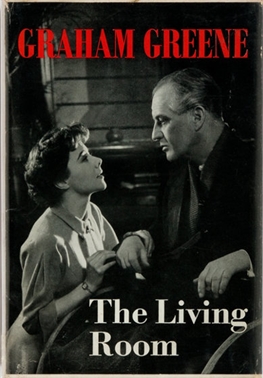
The Living Room is a 1953 play by Graham Greene

Sailor Beware! is a comic play by Philip King and Falkland Cary. After a repertory company production in Worthing in 1954, it opened in the West End of London on 16 February 1955 and ran for 1,231 performances.

The Skin of Our Teeth is a 1959 Australian television play based on the play by Thorton Wilder. It starred John Ewart.
Alan Burke was an Australian writer and film director and producer. His credits include the musical Lola Montez.
References
- ↑ The Theatres, 29 September 1952, The Times
- 1 2 More Shakespeare, 15 June 1953, The Times
- ↑ infotextmanuscripts.org: Criterion Programme
- 1 2 3 Cording, Alastair (1974) Twentieth century Scottish drama. PhD thesis Glasgow Theses Service
- 1 2 3 https://theatricalia.com/play/3zt/the-bad-samaritan
- ↑ Criterion Theatre, 25 June 1953, The Times